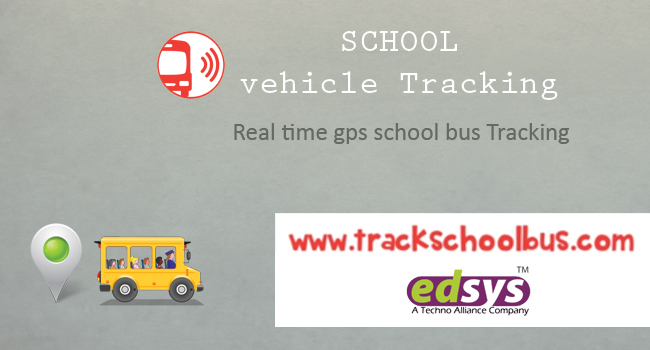School buses are specifically designed for the role of safe transportation of students to and from school. The design for school buses is based on the safety specifications and regulations stipulated by the authorities.
Hence school buses have evolved into a category different from the normal buses and are built by specific manufacturers.
The current set of stringent rules to reduce environmental pollution and health hazards has led schools into buying buses running on fuels other than diesel. Electric buses are found to be the best alternative to diesel powered vehicles.
Read Also:Top 10 School Bus Companies
Zero emissions reduce environmental pollution. The quiet engines create no noise pollution. There is a large saving on fuel costs. It is expected that by 2030 all schools will have converted their school bus fleet into electric.
Top Electric School Bus Manufacturers
1. Blue Bird Corporation
Blue Bird Corporation is a public company with Cerberus Capital as majority stakeholder operating since 1932 from Georgia. They produce school buses fueled by diesel, gasoline, propane, CNG along with fully electric buses.
Blue Bird was awarded a grant of US $ 4.5 million in 2016 to develop electric school buses. They produced two models – Type C and Type D – and marketed them in 2018. The power-train has been developed by Adomani and EDI.
The electric buses have a lithium-ion battery of160kwh capacity. The design provides a range of up to 120 miles. Blue Bird offers a seven year warranty on the battery. They also include a charging station that can recharge at a stretch or overnight.
Blue Bird was the first to produce electric school buses in 1994. Over the years, the advances in technology, especially in battery technology has helped in building more efficient electric buses.
2. IC Bus
IC Bus is a wholly owned subsidiary of Navistar International Corporation. Founded in 2002 the company has its corporate office in Illinois, assembly factory in Oklahoma and parts fabrication unit in Arkansas.
IC introduced their concept Type C electric school bus called ChargE. The bus has a quiet drive-train from Volkswagen and produces no emissions. The ChargE has a range exceeding 120km and the power-train can deliver up to 260kw. This electric bus is set to launch in late 2019.
3. Thomas Built Buses Inc
Thomas Built Buses Inc is a subsidiary of Daimler Trucks North America LLC, the parent company of Mercedes Benz. Thomas was founded as early as 1916 when it was known as Perley A. Thomas Car Works operates from North Carolina.
Thomas developed ‘Jouley’ a Saf-T-Liner eC2, a Type C electric bus named after joule the unit of energy. This bus has an average range of 100 miles between charging stations.
With additional battery packs, higher ranges can be achieved. It takes 3 hours to recharge a battery capacity of 180kwh.They are powered by batteries from Proterra, a leader in battery management systems for heavy-duty electric vehicles.
Jouley claims zero emissions, exportable power and near-quiet operations. Students will be able to directly plug into the vehicle portals to charge their computers, lap tops and phones. Jouley is expected to go into production in 2019.
4. Collins Bus Corporation
Collins Bus Corporation is a wholly owned subsidiary of REV Group. Founded in 1967 and operating from Kansas.
They have introduced a Motiv Powered Type A electric school bus in 2018. The buses have a range of 75 miles and a battery capacity of 106kwh. It requires 8 hours to fully charge the battery pack.
Read Also: How Electric School Buses Can Save Millions for School Districts
The new Type A Electric model is in addition to their existing alternative fuel fleet of school buses powered by propane and CNG.
5. Micro Bird Inc
Micro Bird Inc is a joint venture of Girardin Minibus and Blue Bird. The company is situated in Quebec, Canada. Founded in 1935, Micro Bird introduced a Type A electric powered Micro Bird G5 Electric School Bus in 2017.
With zero-emissions, the G5 offers the cleanest drive-train. The electric bus has no transmission which results in reduced maintenance and service requirements.
6. Starcraft Bus
Starcraft Bus is a division of Forest River Inc., Indiana, and Established in 1997. In 2009, Starcraft in a joint venture with Hino motors (a division of Toyota), developed a prototype of a new Type C vehicle.
But this did not go into production. In 2016, they developed a Type B bus on a Ford chassis to use alternative fuel sources which is presently being manufactured by them.
Forest River, Phoenix Motor cars and Creative Bus Sales have joined together to develop, build and market electric school buses. Phoenix Motorcars supplies electric drive-trains to Forest River for school buses built by them on the Ford chassis. Creative Bus Sales will be the sole representative for vehicle sales and service.
The electric buses powered by electric drive-train technology will have a range of130miles on a single charge. They will be equipped with telematics solutions providing real-time operating information and remote diagnostic techniques. Starcraft electric buses powered by Phoenix will be available in 2019.
7. Lion Electric Company
Previously known as Lion Bus, was renamed in 2017 as a focus towards producing electric vehicles. Lion produces Type C buses. They produce diesel fuel buses and also the fully electric school bus ‘eLion’.
Lion uses composite materials instead of steel for the bus bodies thus minimizing corrosion. Lion manufactures its own chassis, body and battery packs. This allows them to use the best technology keeping manufacturing costs low. Thus they offer their best models at most affordable prices.
The eLion C bus is available in ranges of 50, 75 and 100 miles. Battery packs of 130kwh are used. An on-board single-phase charger is used for charging. The company plans to introduce two more models- eLion A and eLion M.
8. Trans Tech
A division of Transportation Collaborative Inc. operates from New York from 2007. Trans Tech manufactures Type A, fully electric school bus ‘eTrans’ and SST-e. Trans Tech school buses have the longest running ranges. The eSeries are powered by Motiv Power Systems, California and have been in commercial operation since 2014.
The buses are built on Ford E450 chassis. The power-train control system supplied by Motiv is compatible with a wide variety of batteries and chassis. A single battery from a pack can be changed without replacing all the batteries in the pack.
The SST-e model comes with four or five battery packs providing a running range of up to 100 miles. The on-board fast charging technology enables the battery to attain 50% charge in less than an hour and full capacity in 8 hours. The low cost 3 phase charging eliminates the requirement of expensive charging stations.
9. GreenPower Motor Company
Builds electric vehicles. They are into manufacture of Type D buses from 2007. They operate from Canada with their assembly unit at California. GreenPower Synapse 72, introduced in 2017, is a zero-emission Type D school bus.
The basic model has a battery capacity of 100kwh which can be raised to 200kwh depending on charging needs of the bus. The on-board charging system is an added feature.
GreenPower sources its components from global suppliers- drive motors from Siemens, axles from ZF, brakes from Knorr and dash control systems from Parker.
Read Also: School Bus Seat Belts – Are They Compulsory?
The limiting factor in considering the use of electric school buses is the cost of the bus and charging of batteries. With the continuous improvement and research on battery technology, the prices of batteries can be bought down and solve the charging issues .Cleaner fuels contribute to cleaner parts and a longer engine life.
Manufacturers are hoping to work with bus operators, school authorities, government officials, and utility companies to provide a comprehensive solution encompassing charging infrastructure, vehicle technology and financial support.

















